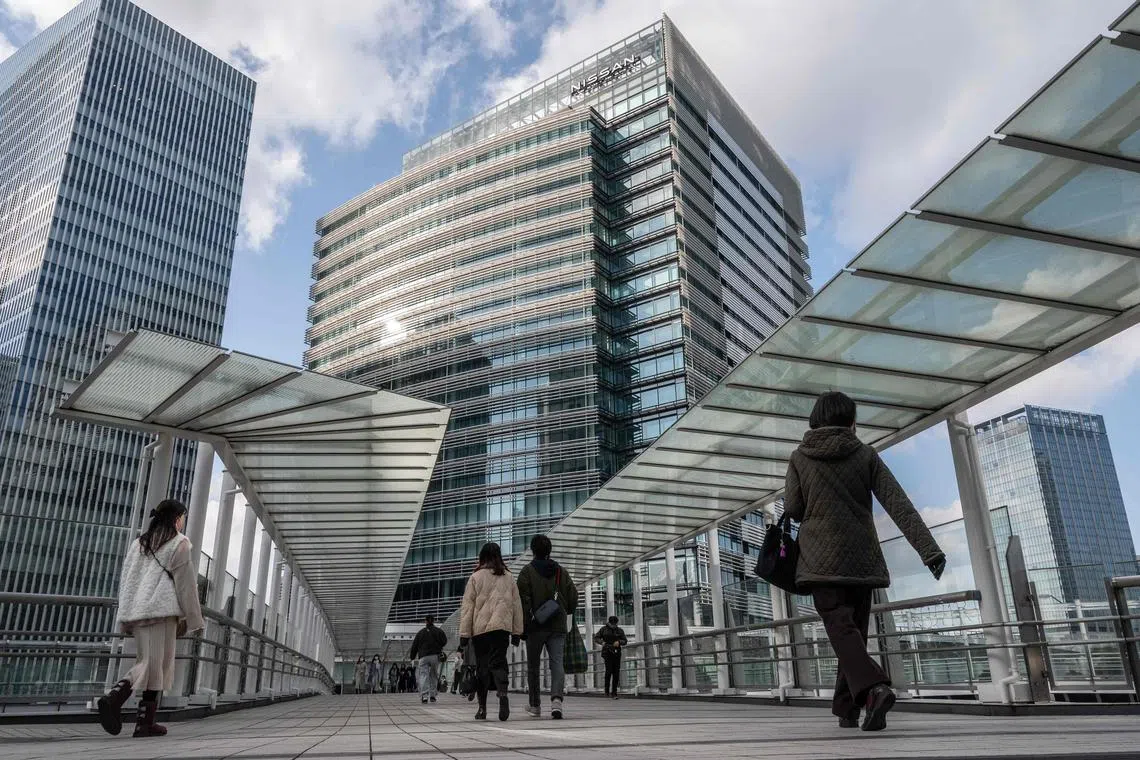Japan real wages drop by most since 2014 despite government push for more pay
Sign up now: Get ST's newsletters delivered to your inbox

Real cash earnings for Japan’s workers dropped for a 10th consecutive month in January.
PHOTO: AFP
TOKYO – Japanese workers’ real wages fell by the most since 2014 despite the government’s push for more pay, underscoring the difficulty of achieving the central bank’s goal of inflation accompanied by robust wage gains.
Real cash earnings for Japan’s workers declined 4.1 per cent from a year earlier in January, slipping for a 10th consecutive month, the Labour Ministry reported on Tuesday. The worse-than-expected drop suggested Japan is still far from a virtuous economic cycle as inflation continued to outpace gains in wages. A slump in bonuses for part-timers dragged on overall pay.
Growth in nominal wages sharply slowed from the previous month’s highest jump in a quarter of a century, which was largely driven by soaring winter bonuses.
Tuesday’s data confirmed that December’s surge was temporary,
“It appears that many firms attempted to respond to inflation with one-time measures such as lump sum payments rather than increases in base wages,” said Mr Toru Suehiro, chief economist at Daiwa Securities. “The impact of December bonuses and inflationary allowances was expected to spill over into the non-bonus portion of wages, but this was not the case.”
Mr Kuroda will be presiding over his last meeting of a decade-long term this week, but his attention on Japan’s wage trend will likely be inherited by academic Kazuo Ueda, who is set to take over the BOJ’s helm in April.
Nominal cash earnings rose 0.8 per cent from the previous year in January, still distant from the level the central bank has said is necessary for sustainable price growth. Mr Kuroda indicated that a 3 per cent wage hike will be necessary to support stable 2 per cent inflation in Japan.
The stagnant salary data may mean that significant pay increases should not be expected from upcoming spring wage negotiations between companies and labour unions.
About 80 per cent of Japanese firms are planning to raise wages, although most will not reach the 5 per cent increase target set by Rengo, Japan’s largest union federation, a report by Tokyo Shoko Research showed. Initial pay round results from Rengo are expected in March.
Prime Minister Fumio Kishida has repeatedly urged business leaders to raise wages at a faster pace than inflation to help boost people’s spending power and to kick-start a virtuous cycle of business activity.
The government’s recent economic stimulus package, amounting to 39 trillion yen (S$387 billion) in fiscal outlay, included incentives for businesses to increase payrolls.
Inflation outpacing wage growth has been weighing on consumption, with household spending declining for the second month in January, risking an entrenched cooling in consumer confidence.
While Tokyo inflation appeared to peak in February as the impact of subsidies kicked in, price gains were still far above the BOJ’s stated 2 per cent target.
“Given today’s figures and the expected base-pay increase as a result of the spring wage negotiations, I think it will be difficult to achieve the BOJ’s 3 per cent target on a steady basis,” said Daiwa’s Mr Suehiro. BLOOMBERG


